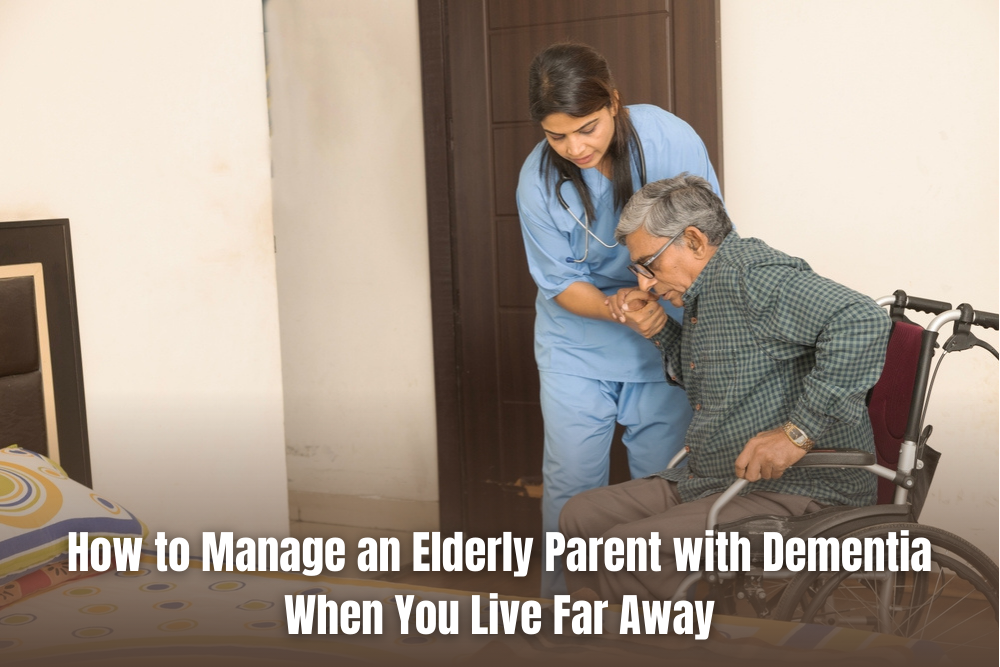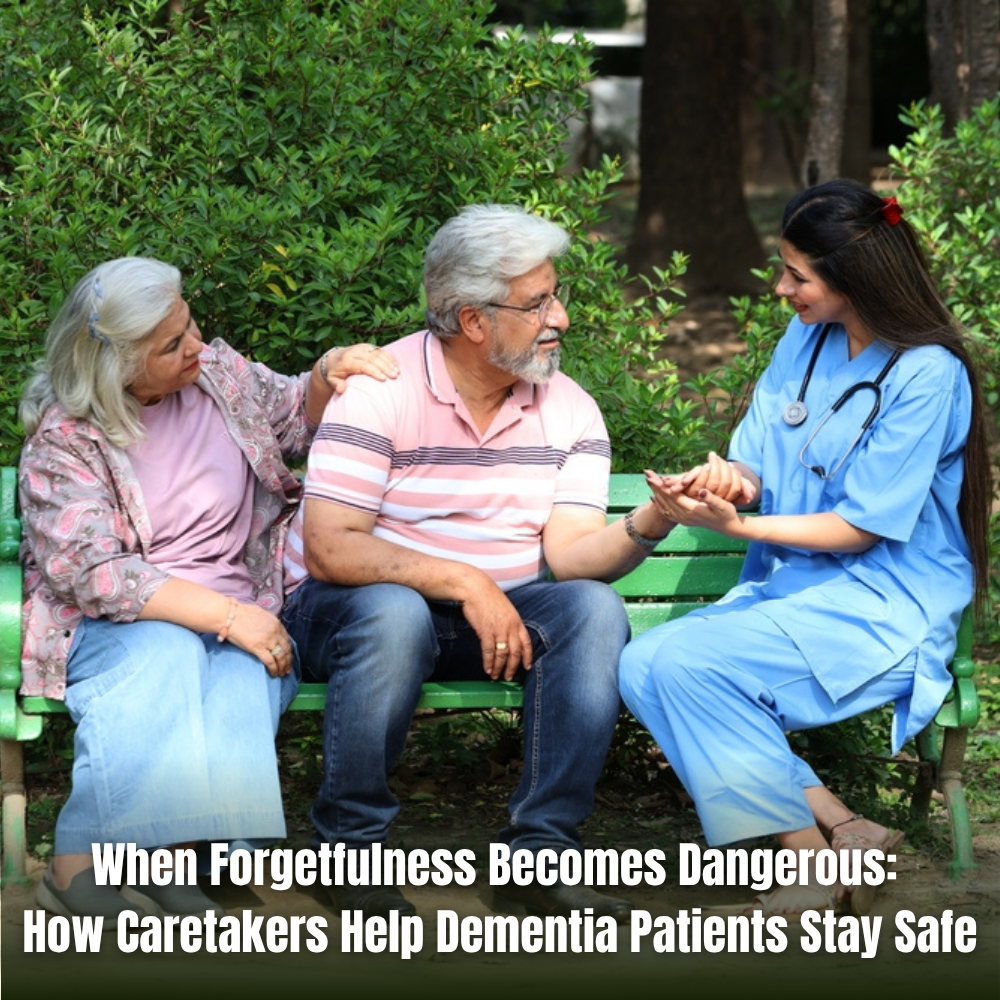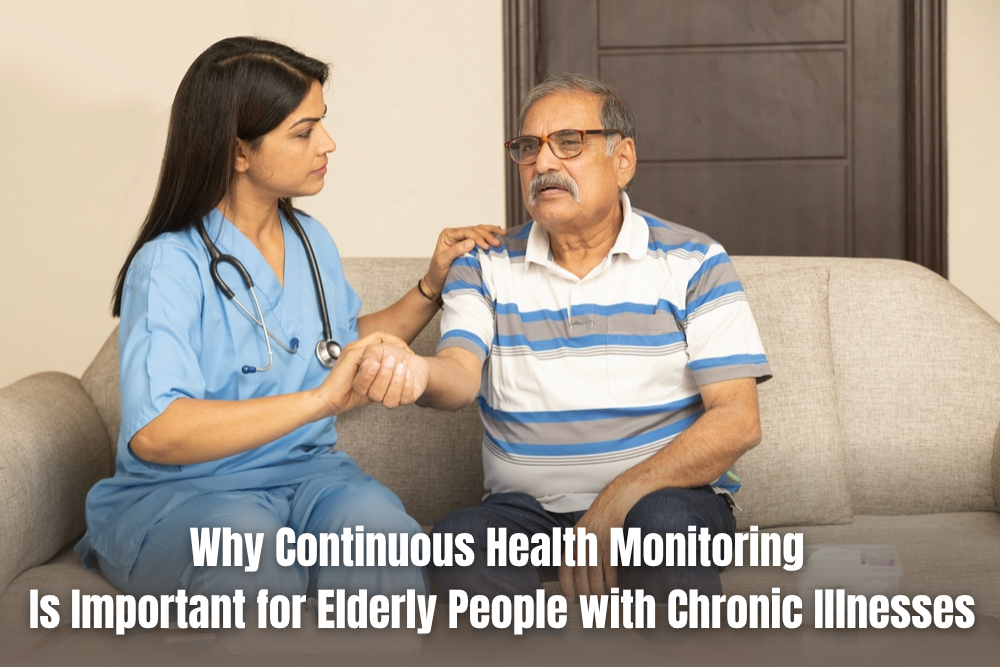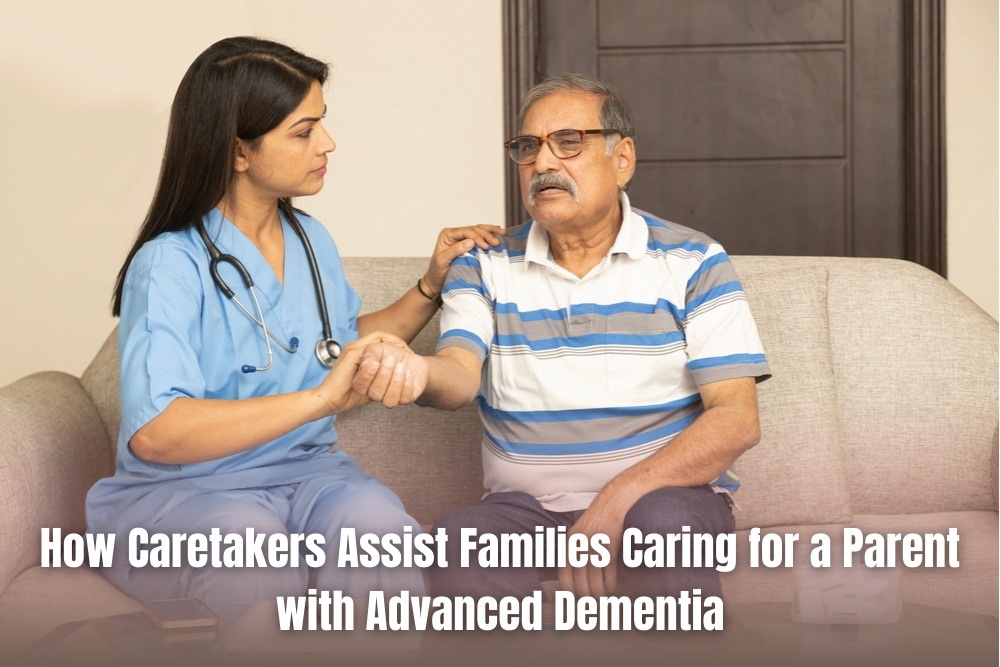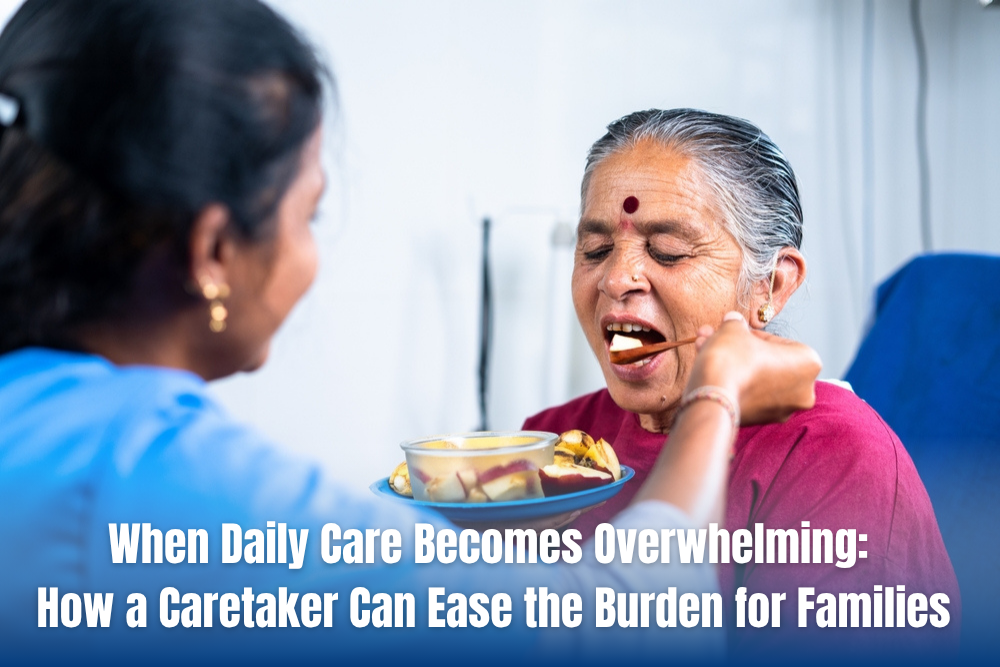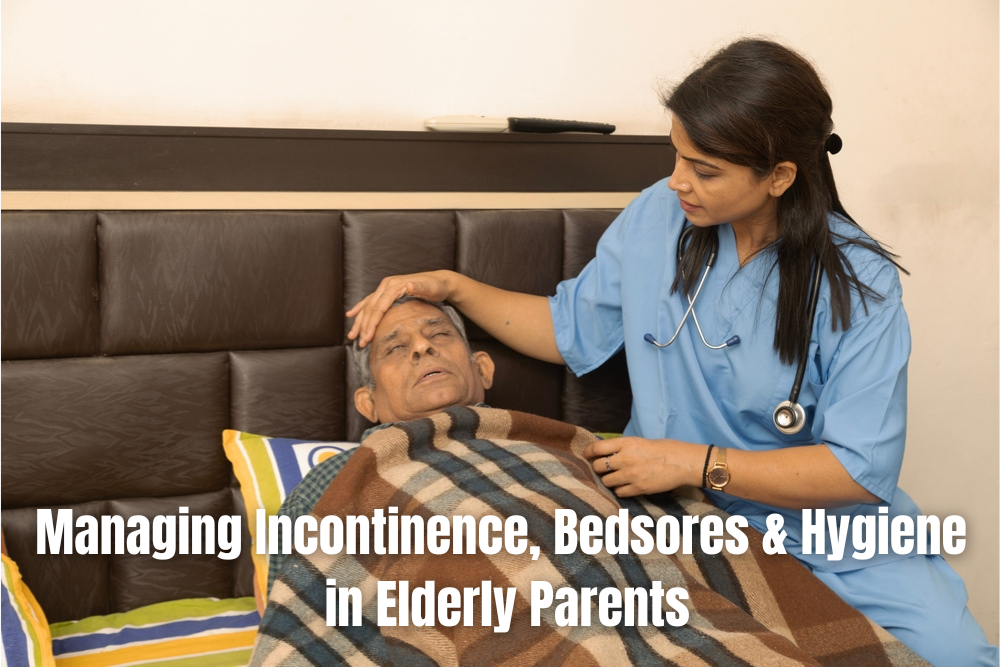Living far away from your parents is already difficult. But when your elderly parent has dementia, the worry increases every single day. You may constantly think:
- What if they forget to take their medicines?
- What if they wander outside?
- What if something happens at night?
- Are they feeling lonely?
Managing dementia from a distance is emotionally exhausting. You want to be there but work, responsibilities, or living abroad make it impossible.
The good news is: with the right planning and professional support, you can ensure your parents stay safe and cared for even when you’re not physically present.
This article will guide you step by step.
First: Understand What Dementia Requires
Dementia is not just forgetfulness. It can include:
- Memory loss
- Confusion about time and place
- Repeating questions
- Mood swings
- Aggression or fear
- Wandering
- Difficulty managing daily tasks
Dementia patients need routine, supervision, and emotional reassurance every day.
Practical Steps to Manage Dementia from a Distance
1. Ensure Daily Supervision
A dementia patient should not be left alone for long hours.
If you live far away, arrange:
- A full-time caretaker
- A live-in caregiver
- A trusted family member nearby
Professional supervision is one of the most important safety measures.
2. Hire a Trained Dementia Caregiver
Not every caretaker understands dementia behavior. Choose someone trained in:
- Handling confusion calmly
- Preventing wandering
- Managing mood changes
- Giving medicines correctly
- Creating a structured daily routine
A trained caregiver becomes your eyes and hands at home.
3. Create a Fixed Daily Routine
Dementia patients feel safer with routine. Ensure:
- Fixed waking and sleeping times
- Regular meal timings
- Medicine schedules
- Light daily activities
Consistency reduces anxiety and agitation.
4. Make the Home Safe
When living far away, ensure the home is:
- Free from loose rugs or slippery floors
- Equipped with bathroom grab bars
- Safe from open gas stoves
- Well-lit at night
- Locked safely to prevent wandering
Small safety changes make a big difference.
5. Use Technology Smartly
Technology can help you stay connected:
- Daily video calls
- CCTV monitoring (if comfortable)
- Medication reminder apps
- GPS tracking for wandering risk
- Emergency alert devices
These tools provide reassurance but they should not replace physical supervision.
6. Stay Emotionally Connected
Even from far away, your voice matters.
- Call daily
- Keep conversations simple and calm
- Don’t correct or argue about memory mistakes
- Talk about familiar memories
Your emotional presence gives comfort.
7. Stay in Regular Touch with the Caregiver
Good communication with the caregiver is essential:
- Ask for daily updates
- Discuss behavior changes
- Monitor eating and sleeping patterns
- Stay informed about medical visits
You should always know what’s happening.
8. Arrange Regular Doctor Checkups
Even if you are far away:
- Schedule routine neurologist visits
- Ensure prescriptions are followed
- Monitor for sudden changes
Early medical attention prevents complications.
Emotional Challenges of Managing from Far
Children living away often feel:
- Guilt
- Anxiety
- Helplessness
- Fear of missing emergencies
Remember: being physically far doesn’t mean you care less. Planning properly is an act of responsibility.
Why Professional Dementia Care Is Essential
Dementia patients need:
- Constant supervision
- Emotional reassurance
- Calm handling of aggression
- Structured daily support
- Safe mobility assistance
Professional caregivers reduce risks and protect both patient and family from emotional burnout.
Shree Swami Samarth Patients Seva: Supporting Families from a Distance
At Shree Swami Samarth Patients Seva (www.sssps.in), we specialize in dementia care at home.
Our trained caregivers:
- Provide 24/7 supervision
- Follow structured routines
- Manage medication schedules
- Prevent wandering
- Offer companionship
- Give regular updates to families
We understand the stress of living far away. Our goal is to ensure your parents feel safe, calm, and respected while you stay informed and reassured.
FAQs
Q1: Can dementia patients live alone safely?
Usually no. Daily supervision is strongly recommended.
Q2: How often should I visit if I live far away?
Visit when possible, but daily professional care ensures safety between visits.
Q3: What if my parents refuse a caregiver?
With patience and respectful introduction, most patients gradually adjust.
Q4: How do I know the caregiver is trustworthy?
Choose a verified agency with trained staff and regular communication.
Conclusion
Managing a parent with dementia while living far away is emotionally challenging but it is manageable with the right support system.
You may not be there physically every day. But by arranging professional care, maintaining communication, and planning properly, you ensure your parents are safe, comforted, and cared for.
At Shree Swami Samarth Patients Seva, we stand beside families navigating dementia care especially when distance makes things harder.
You don’t have to choose between your responsibilities and your parents’ safety. With the right support, you can manage both.


